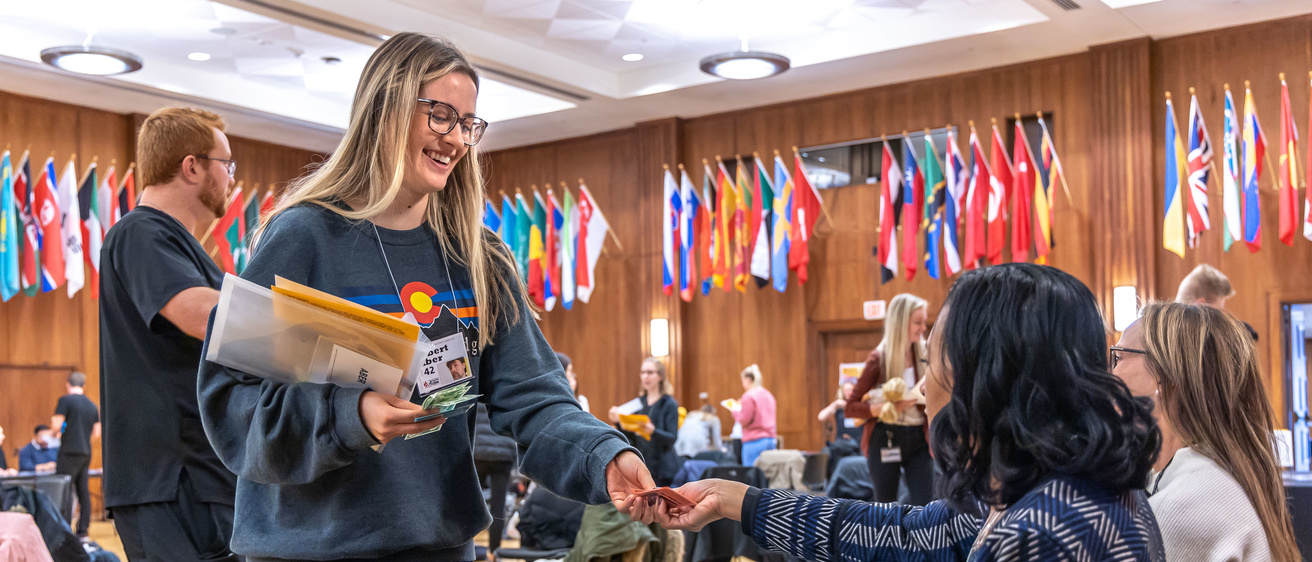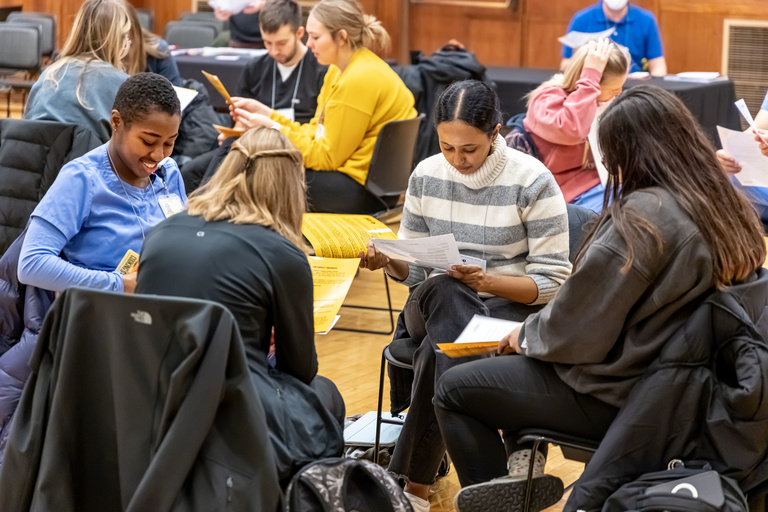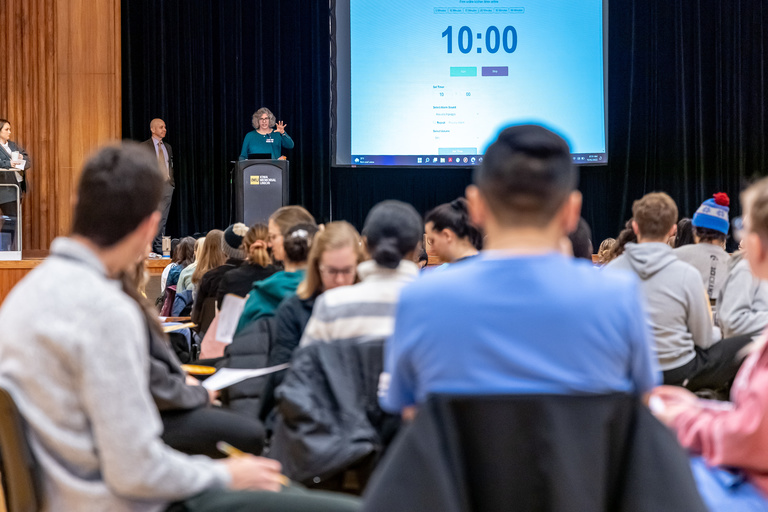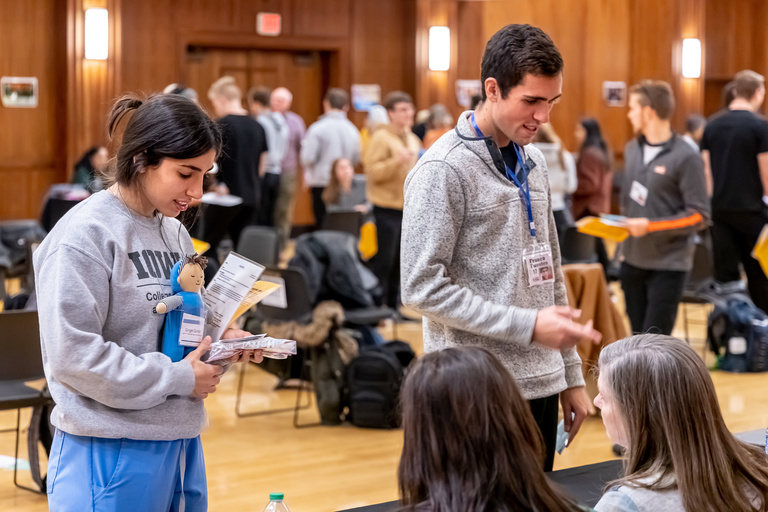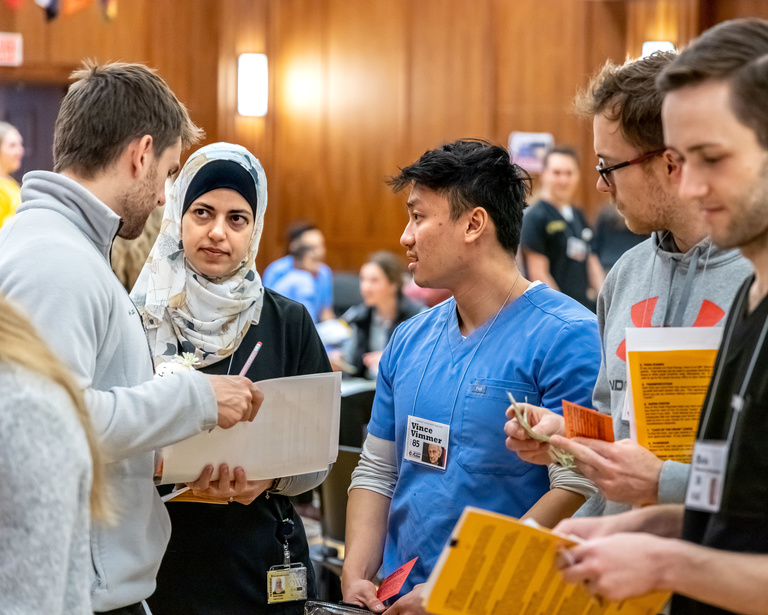For numerous socioeconomic reasons, people experiencing poverty tend to have significant barriers for accessing health care in general and dental care more specifically. These barriers may include, but are not limited to, financial barriers (inability to pay), lack of acceptable health insurance, lack of transportation to and from appointments, inability to get off work for appointments, and discrimination and bias among care providers.
The Missouri Community Action Network developed a poverty simulation where dental students role-play in order to develop a greater awareness of these barriers and to transform perspectives. On November 15, 84 third- and fourth-year dental students participated in the College of Dentistry's annual poverty simulation.
For several years, students have participated in the simulation prior to beginning their D3 or D4 year. The simulation proved so valuable that the college decided to integrate the experience into the D3 curriculum this year in the fall. This coincides with students first offering comprehensive clinical care to many patients facing an array of treatment barriers, including financial barriers to care.
The organizing committee recruited 25 volunteers from among College of Dentistry faculty and staff and from the broader community. These volunteers “staffed” 16 community resources, including a mortgage company, employment agency, daycare, and pawn shop. Students were placed into families and tasked with paying bills and meeting obligations for four consecutive 15-minute weeks, to demonstrate how difficult it can be to remain financially solvent, even when working full time.
During the debriefing, the volunteers—many with direct personal and professional experience with poverty—shared their observations and insights with the students. For these populations, securing food and shelter is typically a higher priority than healthcare. One of the major benefits of this educational simulation is that students experienced the logistical and cognitive challenges of poverty which may manifest in their careers as missed appointments, unhealthy diet, poor oral hygiene, and children sitting in the waiting area because childcare is unaffordable.
Ultimately, this simulation helps students develop cognitive and affective empathy which enhances their ability to plan treatments that patients can realistically implement.
